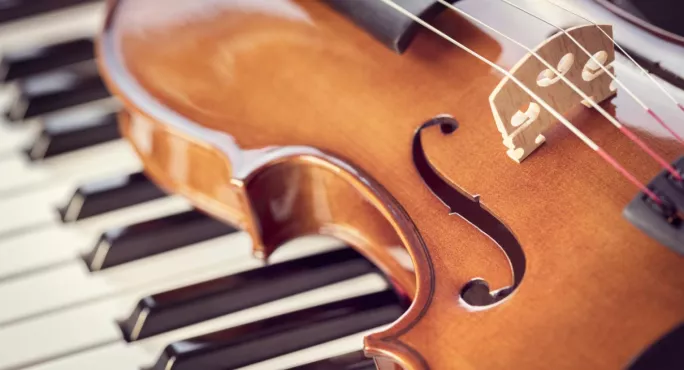Ofsted warns schools over ‘unbroken’ KS3 music teaching

Schools should provide “regular, unbroken” music learning for key stage 3 pupils to ensure it is being taught as robustly as other subjects on the curriculum, Ofsted has said.
The inspectorate’s subject lead, Mark Phillips, warned that if schools provide music as part of a “carousel” for pupils aged 11-14 - where it is only being taught for one term or half a term in every three - then they are putting the “brakes” on students’ music learning.
Speaking at the Westminster Education Forum policy conference, he also said that pupils should be provided with a music education in the same way they are taught literacy and numeracy skills.
Ofsted: 6 ways Ofsted wants schools to teach music
Music: Hire more teachers to boost music in schools, DfE told
Curriculum: Model music curriculum is launched
He said: “If as music educators we want to see music as an equal on the curriculum with other subjects, we need to ensure that the curriculum in music is planned, sequenced and taught as rigorously and robustly as any other curriculum subject.
“If in key stage 3, music is timetabled in the carousel, where pupils have music for example for only one term or one half term in every three, immediately you’re placing the brakes on that increasing aural memory and increasing sophistication.
“If the past two years have taught us anything about learning, then surely it’s about the importance of regular, unbroken learning to build memory.”
Ofsted’s education inspection framework, launched in 2019, places an increased emphasis on the school curriculum and on how individual subjects are taught and sequenced.
This year, the government launched a new supplementary model music curriculum for schools.
The government said that the model framework should ensure that all pupils can benefit from “knowledge-rich and diverse lessons” and “make it easier for teachers to plan lessons and help to reduce workload by providing a structured outline of what can be taught in each year group”.
Mr Phillips said that schools do not need to strictly follow the model curriculum to the letter and that Ofsted will not judge them on this during inspection.
He said: “When we inspect schools, we’re not expecting to see the model curriculum per se being implemented to the letter and schools will not be judged either way.
“That’s not to say the model music curriculum isn’t welcome, interesting or useful, actually it’s all of those.
“What we do expect schools to deliver is the existing statutory current national curriculum that has been in place since 2014.
“When we inspect schools, in every subject, we expect the curriculum to match or exceed the ambition as set out in the national curriculum.”
What do ‘deep dives’ in music reveal?
Ofsted looks at individual subject teaching through deep dives during their school inspections.
Mr Phillips added: “When we conduct the deep dive in music, schools will often be very keen to show that they meet the ambition of the national curriculum because they provide all the activities listed in national curriculum aims, such as singing, playing instruments, listening and composing.
“But that’s a common mistake to make. Just because you have some signing in your school curriculum, a term of learning an instrument, and some listening, it doesn’t mean to say your music curriculum is ambitious.”
Speaking about the importance of musical education, Mr Phillips added: “It’s not just about simply providing and facilitating activities and opportunities, it’s about providing an accumulated body of musical knowledge that by the end of Year 9 is sufficient to give pupils access to an understanding of music they will encounter in the rest of their lives.
“In the same way we provide pupils with the literacy and numeracy tools that they need for adult life, we need to give them the musical tools they need for a lifetime of music-making and intelligent listening.”
Bridget Whyte, chief executive of music education association Music Mark, also stressed the importance of a music education at the conference.
She added: “The immediate priority is funding. There are 9 million children in state schools [aged] 5-16. The music education budget is £76.1 million. This [amounts to] approximately £8.56 per pupil, which is a very small amount with which to achieve great things.”
You need a Tes subscription to read this article
Subscribe now to read this article and get other subscriber-only content:
- Unlimited access to all Tes magazine content
- Exclusive subscriber-only stories
- Award-winning email newsletters
Already a subscriber? Log in
You need a subscription to read this article
Subscribe now to read this article and get other subscriber-only content, including:
- Unlimited access to all Tes magazine content
- Exclusive subscriber-only stories
- Award-winning email newsletters
topics in this article



